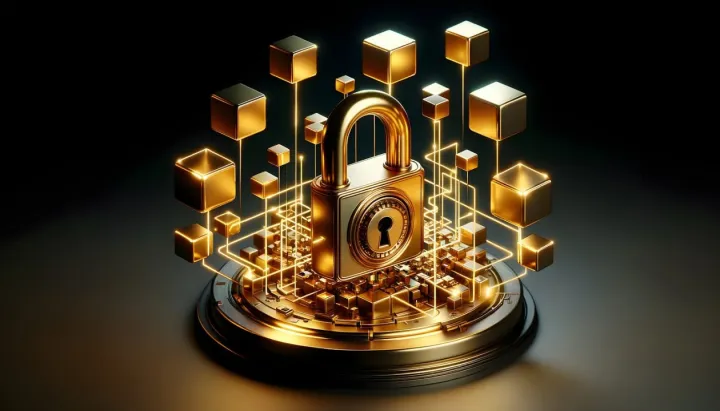SPONSORED CONTENT
Safeguarding your Bitcoin holding from cyber threats and fraud

Bitcoin, the world’s foremost cryptocurrency. However, as Bitcoin Price and popularity surge, so do the risks associated with security breaches and fraudulent activities. In this extensive guide, we delve into effective strategies for securing your Bitcoin holding, empowering you to navigate the cryptocurrency landscape safely and protect your assets.
The Significance of Harnessing Bitcoin Security
Understanding the escalating threat of hacks and scams is crucial. While Bitcoin’s decentralized nature grants users greater financial autonomy, it also exposes them to heightened security risks. Cybercriminals employ sophisticated tactics, ranging from phishing attacks and malware infections to exchange breaches and Ponzi schemes, to exploit vulnerabilities and siphon funds from Bitcoin investors.
Moreover, identifying potential Bitcoin scams or security threats demands a discerning understanding of common tactics employed by cybercriminals to deceive unsuspecting investors. Here are some warning signs to remain vigilant:
1.Unsolicited Requests for Private Information:
Exercise caution regarding unsolicited requests for sensitive information like private keys, passwords, or account credentials. Legitimate organizations never solicit such details via email, social media, or other channels.
2. Unrealistic Promises:
Be wary of business opportunities that promise guaranteed returns or unrealistic profits with minimal risk. Scammers often entice victims with promises of high returns to lure them into fraudulent schemes.
3. Pressure Tactics:
Beware of high-pressure tactics aimed at coercing you into making hasty decisions without adequate due diligence. Scammers may create a false sense of urgency by claiming an opportunity is time-sensitive or that immediate action is necessary to prevent missing out.
4. Unsolicited Business Offers:
Exercise caution if you receive unsolicited offers via email, social media, or phone calls, particularly if they promise quick returns or demand immediate action. Legitimate opportunities are typically researched and pursued by investors, not forced onto them by strangers.
5. Absence of Transparency or Information:
Thoroughly examine opportunities lacking transparency or offering limited information regarding the company, project, or individuals involved. Legitimate enterprises typically furnish comprehensive details about their operations, team members, and financial performance.
6. Unsolicited Software Downloads or Links:
Refrain from clicking on unsolicited software downloads or links sent through email, social media, or messaging platforms. These could harbor malware or phishing attempts intended to pilfer your Bitcoin or personal information. Prioritize caution and authenticate the legitimacy of any software or links before proceeding with downloads or clicks.
7. Substandard Website Design or Communication:
Take note of the caliber of websites, emails, or communication associated with potential opportunities. Legitimate entities typically invest in polished design and communication, whereas scams may exhibit grammatical errors, spelling mistakes, or amateurish presentations.
8. Lack of Regulation or Licensing:
Conduct thorough research into the regulatory status and licensing of opportunities to verify compliance with pertinent laws and regulations. Refrain from investing in platforms lacking regulation or operating in jurisdictions with lenient oversight, as they may serve as fronts for fraudulent endeavors.
9. Social Validation and Testimonials:
Exercise caution when assessing social validation or testimonials from fellow investors. Scammers may fabricate positive reviews or testimonials to foster a false sense of legitimacy. Engage in independent research to authenticate the veracity of endorsements or testimonials before committing to a decision.
Best Practices for Bitcoin Security
The following methods and protocols stand as optimal choices for any cryptocurrency trader aiming to fortify their Bitcoin holdings:
1. Embrace Secure Storage Solutions:
Prioritize secure storage as a cornerstone of Bitcoin security. Safeguard your Bitcoin in a secure wallet to prevent unauthorized access and theft. Explore options like hardware wallets or cold storage solutions, which store Bitcoin offline and offer heightened resistance to hacking attempts. Additionally, reinforce your security measures by enabling two-factor authentication (2FA) on your wallets and accounts.
2. Exercise Vigilance Against Phishing Attacks:
Remain vigilant against phishing attacks, a prevalent tactic employed by cybercriminals to deceive users into divulging sensitive information or transferring funds to fraudulent addresses. Approach unsolicited emails, messages, or websites requesting personal or financial information with caution. Verify the authenticity of communications and scrutinize website URLs before disclosing sensitive data. Remember, reputable organizations never solicit private keys or passwords.
3. Exercise Caution on Cryptocurrency Exchanges:
When trading or storing Bitcoin on cryptocurrency exchanges, exercise caution and conduct thorough research before selecting a platform. Opt for exchanges with a demonstrated history of security and regulatory compliance. Furthermore, refrain from maintaining substantial Bitcoin balances on exchanges for prolonged periods; instead, transfer funds to secure offline storage solutions when not actively engaging in trading activities.
4. Stay Informed and Educated:
Maintaining awareness of the latest developments and security best practices in the cryptocurrency realm is paramount for safeguarding your Bitcoin holdings. Stay abreast of common scams and security threats by leveraging reputable sources such as industry blogs, forums, and news outlets. Educate yourself on fundamental security principles and proactively implement measures to shield your funds from potential risks.
Securing Bitcoin or any cryptocurrency holdings necessitates diligence, vigilance, and proactive measures to mitigate the risk of hacks and scams. By adhering to best security practices such as adopting secure storage solutions, exercising caution against phishing attacks, prudently navigating cryptocurrency exchanges, and remaining informed and educated, you can fortify your asset holdings & minimize the likelihood of security breaches. However, given the dynamic nature of the cryptocurrency landscape, maintaining vigilance and adapting security strategies accordingly remains imperative. DM
















 Become an Insider
Become an Insider